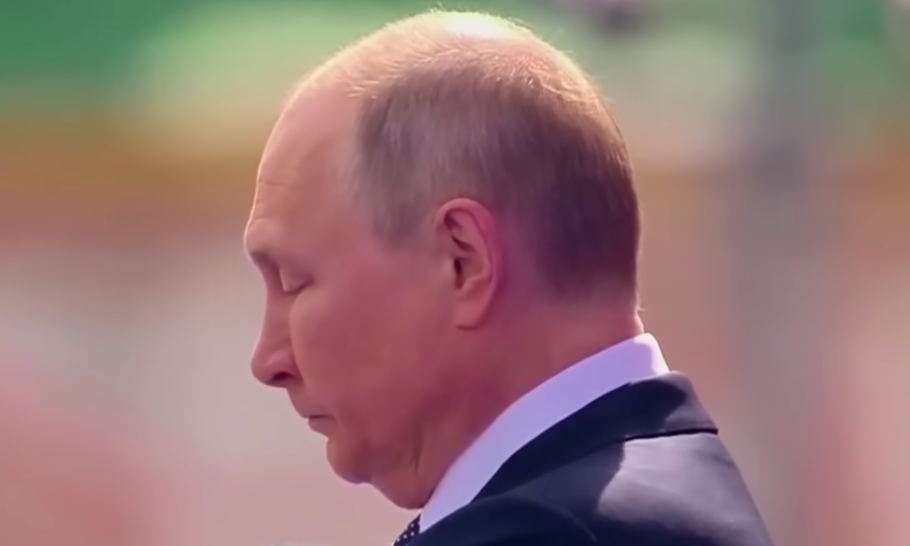How to stop Putin going nuclear

Vladimir Putin is considering using nuclear weapons in Ukraine, according to Avril Haines, the Director of National Intelligence in the United States. At a Senate Armed Services Committee hearing in Washington DC, she warned that the war would become “more unpredictable and escalatory” as Putin came to terms with “a mismatch between his ambitions and Russia’s current conventional military capabilities”. While analysts judged that a resort by the Russian leader to the nuclear option was not “imminent”, he might do so if he believed that he was losing the war or that NATO was “either intervening or about to intervene in that context”.
This is the first time that American intelligence has spoken publicly of a serious threat of nuclear conflict in Ukraine. The warning from Ms Haines comes at a time when the Russian offensive in the Donbas region appears to have ground to a halt. Meanwhile Ukrainian forces have retaken several towns near Kharkiv and are now close to the Russian border. The war is costing the Russians heavily in men and materiel. Morale is low, with reports of troops sabotaging their own vehicles to avoid going to the front. The bodies of dead soldiers are being dumped in anonymous mass graves, while their families are told only that they are missing in action. The invaders’ death toll is put at more than 26,000 by the Ukrainians; the Kremlin’s refusal to issue casualty figures means that ordinary Russians fear the worst.
In short, the war is still going badly for Putin. Despite the show of strength at this week’s Victory Day parade in Moscow, it has been impossible to disguise the failure to achieve any of the goals of his “special operation”. But if Avril Haines is correct, the fact that Putin is losing only renders him more dangerous. His speech on Monday was mainly directed at the domestic audience, reinforcing the narrative that he is fighting a preventive war that was forced upon him by NATO’s expansion along Russia’s borders.
In fact, the West had done little to arm Ukraine and had refused to extend the NATO umbrella to cover it. By invading his neighbour, Putin has brought about the very situation that he now claims in justification: NATO is pouring its latest equipment into Ukraine and will soon extend its border with Russia when Finland and Sweden join the alliance. The dictator can now point to Russian forces engaged with an enemy armed by the West. He now has a rationale for escalating the conflict, or even for deploying tactical nuclear missiles.
What is the right response at this critical moment? The West faces a choice: between the conciliatory gestures of leaders such as President Macron, Chancellor Scholz and Pope Francis, or the resolute opposition of President Biden and Boris Johnson, who have been steadily reinforcing the Ukrainians. The question is: which approach is more likely to deter Putin from using weapons of mass destruction?
We should not assume that the West is not already acting on the intelligence that has now been made public. Joe Biden has no desire to play by Putin’s rules, but he is likely to have conveyed to the Kremlin that any use of WMD in Ukraine will not be ignored by the US. It is unthinkable that NATO could watch impotently while a European country was subjected to chemical or nuclear attack. The doctrine of deterrence depends on reliable signalling by both sides to avoid a crisis escalating out of control. Avril Haines seems confident that Putin “would be likely to engage in some signalling behind what he’s done thus far” before deploying nuclear weapons.
The West needs to send Putin a firm message and present a united front. If Russia is not strong enough to win its illegal war in Ukraine, it certainly cannot risk a trial of strength with NATO. The French President went to Strasbourg to tell the European Parliament that there must be no “humiliation” for Russia. But this is not in his gift. Putin is being humiliated because his forces are unequal to the conquest of Donbas, let alone the Black Sea coast. The Russians have brought humiliation upon themselves, by blindly obeying a dictator who is in the grip of hubris.
It is not for the West, let alone Ukraine, to save him from the consequences of his folly. The consensus is that Putin is still a rational actor. NATO’s task, therefore, is to make it clear that any use of nuclear weapons would be wholly irrational from his point of view. This is no longer about saving Putin’s face, but about deterring him from dragging others down with him when he falls, as he surely will. Putin and, crucially, his generals and intelligence chiefs need to be in no doubt that deploying the Russian nuclear arsenal would be to turn defeat into catastrophe. How precisely that message is to be articulated and conveyed is for experts to decide. But it sounds as if there is no time to lose. Seventy years of preparation ought to be sufficient for NATO to stop Putin from going nuclear.
A Message from TheArticle
We are the only publication that’s committed to covering every angle. We have an important contribution to make, one that’s needed now more than ever, and we need your help to continue publishing throughout the pandemic. So please, make a donation.





